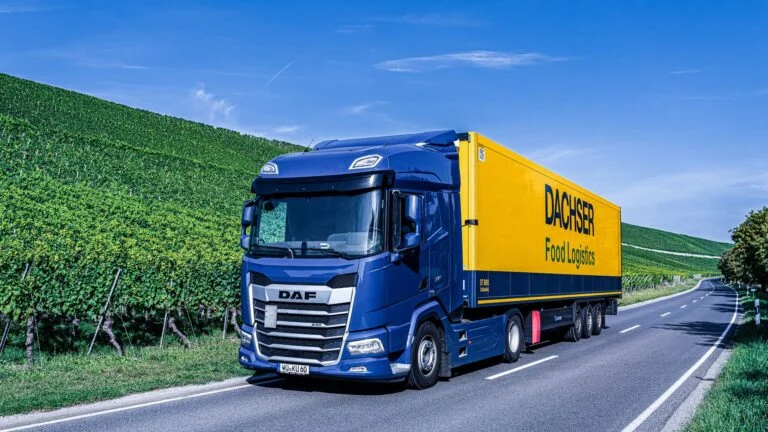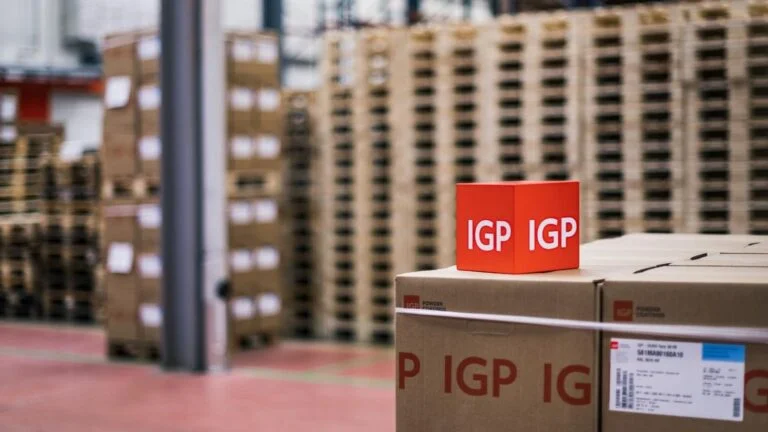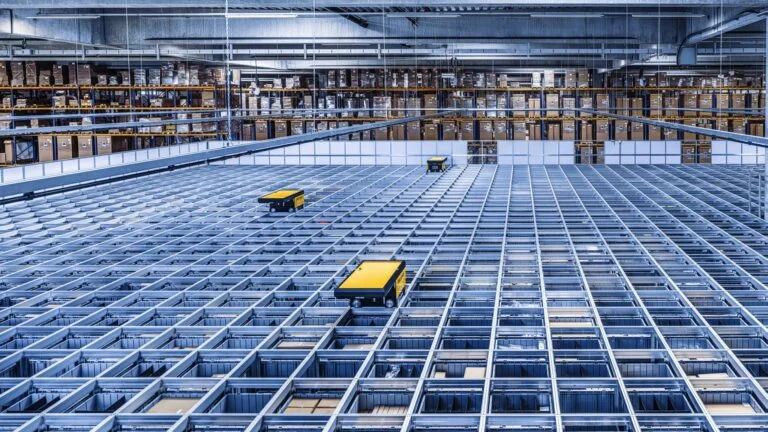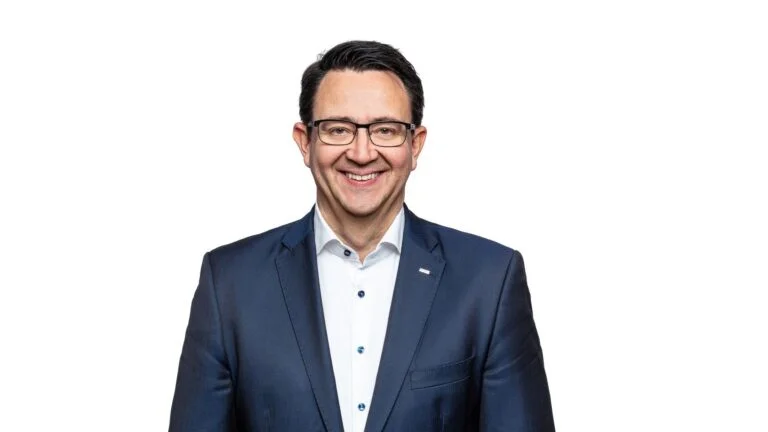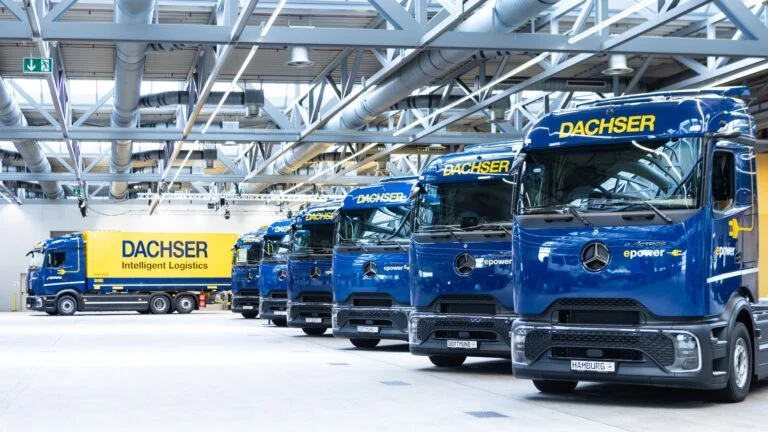Pilot project in Munich: Food by cargo bike
By Christian Auchter I Photo: Landeshauptstadt München, Mobilitätsreferat/DobnerAngermann I 5 minuten read
23/07/2025
DACHSER is pushing ahead with emission-free deliveries to city centers and has launched a pilot project in Munich in which food is delivered refrigerated by cargo bike and specially developed transport containers. The pilot is intended to provide insights into how emission-free city center deliveries of chilled goods can be made efficient and economical.
Quick Read
The two-month pilot project is being implemented by DACHSER Food Logistics Munich, based in Neufahrn. Together with its partner B4B Logistics and the companies DENSO with its GreenZen Solutions brand and MBM, two technologies have been tested in Munich city center since the end of June to deliver refrigerated shipments flexibly, quietly and emission-free by cargo bike.
Intensive test phase
A cargo bike with an insulated transport container and battery-powered cooling unit from GreenZen Solutions with a payload of 190 kilograms is being used. This active cooling solution is equipped with sensors and a connectivity module for reliable inner-city deliveries.
In addition, a trailer with a superstructure from MBM is used, which has passive cooling by means of cooling packs and fans. The trailer can hold an entire Euro pallet with a total weight of up to 400 kilograms.
For delivery in the city center by cargo bike, the shipments are first brought from the DACHSER Food Logistics branch in Neufahrn to the new bike logistics hub at the Paketposthalle in Wilhelm-Hale-Straße. These include a wide variety of foodstuffs, such as dairy, meat and sausage products. A large, refrigerated container is available at the cycle logistics hub to temporarily store the consignments.
Depending on the planned tour, the goods are then loaded onto the cargo bike and trailer to be delivered to one or more consignees. Deliveries are made to hotels, bars, restaurants, kiosks, supermarkets and delicatessens, for example. Two tours a day are planned during the pilot project. It is crucial for the high quality and safety standards in food logistics that the cold chain is never interrupted during the entire transport process, which is monitored by sensors.
DACHSER is committed to environmental and climate protection through concrete measures and strategic research projects. The company’s website provides an overview, including information on emission-free inner-city deliveries.

There are currently hardly any technical solutions in the refrigerated area for cargo bikes that have been tried and tested in everyday logistics and meet the qualitative and economic requirements.
Experience with emission-free city logistics
DACHSER can already draw on many years of experience in emission-free city center deliveries. The concept, known as DACHSER Emission-Free Delivery, is now in use in 19 major European cities, with six more to follow by the end of 2025. Depending on local conditions, e-trucks, e-vans, or cargo bikes will be used. In 2018, the company received the Sustainable Urban Logistics Award from the German Federal Ministry for the Environment and the Federal Environment Agency for the concept and its pilot implementation in Stuttgart.
DACHSER also defined a delivery zone in Munich in 2022 in which non-refrigerated general cargo shipments are delivered exclusively by e-truck and cargo bike. Here, the logistics provider is working with its partner B4B Logistics, which is also on board with the new pilot project for the emission-free delivery of refrigerated goods, especially food, in Munich’s city center. With the companies DENSO and MBM, technology partners have also been found to jointly implement the ambitious project. The pilot is also supported by the Mobilitätsreferat of the City of Munich with the new bicycle logistics hub at the Paketposthalle, which offers an ideal starting point for inner-city deliveries.

Agile and fast in the city center
“There are currently hardly any technical solutions in the refrigerated area for cargo bikes that have been tried and tested in everyday logistics and meet the qualitative and economic requirements,” explains Wolfram Kölzow, Operations Manager at DACHSER Munich Food Logistics in Neufahrn. “Accordingly, it is now a matter of generating findings in the coming weeks as to what a reliable set-up looks like. The bike logistics hub is an important building block for launching such a pilot.”
With our pilot project, we want to gain valuable practical experience that we can transfer to our European food logistics network in the future.
“Cargo bikes can be a very useful addition to urban delivery traffic. They can be used flexibly, are quiet and emission-free and therefore make an important contribution to sustainable inner-city deliveries,” says Stefan Behrendt, Managing Director Food Logistics at DACHSER. “They offer great potential, especially for temperature-controlled deliveries over the last mile, even if their use is currently still subject to certain conditions: short distances, a high delivery density and suitable infrastructure such as micro-depots. With our pilot project, we want to gain valuable practical experience that we can transfer to our European food logistics network in the future.”

